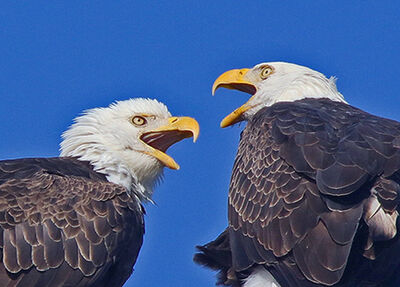Size matters
May 12, 2018 11:48:01 #
Before you expend lots of effort try printing one of the jpegs, convert to tiff, then print that and see what you think.
May 12, 2018 11:55:42 #
If you are going to use TIFF as the format you save images in, it's best to do it from a RAW file than a JPEG. The OP in this thread was looking for a way to make a JPEG bigger.
May 12, 2018 12:15:22 #
df61743
Loc: Corpus Christi, TX
RWR wrote:
How does one save an 8 bit JPEG as a 16 bit TIFF?
Converting a JPG to TIFF, does create a file that is larger on disk, but it does not change the pixel dimensions nor does it improve the quality of the image. Once JPG compression has been applied, information has been lost and will remain lost when it's converted to TIFF, thus there's little to be gained by converting. The only advantage might be that that TIFF could be repeatedly edited without further loss.
TIFF is a "lossless" format, meaning you can repeatedly edit and save it without losing any information. The best use of it is to shoot RAW, then apply whatever processing you want to the image, then save it as a TIFF. Then you may work on the image and save it as often as you want to, without loss. The last thing you would do, after post processing has been applied to your satisfaction, is save a final copy of the TIFF in JPG format for whatever purpose you want.
A good policy, would be to leave that JPG alone. JPG images go through considerable compression when they are saved, meaning a lot of information in that image is discarded, and that compression occurs each and every time it is saved. It may not be apparent to your eye when you are looking at the JPG on your screen, never the less, there is a loss of detail that had happened, compared to the original RAW or TIFF.
Dick
May 12, 2018 13:59:14 #
RWR
Loc: La Mesa, CA
df61743 wrote:
Converting a JPG to TIFF, does create a file that ... (show quote)
I like TIFFs because they’re lossless.
May 12, 2018 17:22:28 #
OneShotOne18 wrote:
I have 100's of photos and some are really good bu... (show quote)
This is called up-rezing or pixel enlargement.
In most Adobe programs you can use the default "bicubic smoother" for pixel enlargement. Some people, myself included, recommend you enlarge in increments of 10% or less at a time to your final size.
A total 0f 30-40% done this way is, for the most part, harmless.
..
May 12, 2018 18:54:07 #
OneShotOne18 wrote:
I have 100's of photos and some are really good bu... (show quote)
Once you downsample/downsize a jpeg using a lower quality setting, there is no returning to a better/higher quality image.
Agencies probably want a minimum of 6 mp, not mb. A 6 mp image - 2000x3000 px - can easily print to 40x60 or bigger. You may find that the 1.75 mb files may have enough pixels.
May 12, 2018 21:03:22 #
TheShoe
Loc: Lacey, WA
digitalexplr wrote:
The 5700 had a 7 meg sensor. Are all your 5700 pictures at reduced resolution?
They are jpegs, so they are compressed. The actual picture size depends on the quality specified for the compression.
May 12, 2018 23:15:28 #
TheShoe wrote:
They are jpegs, so they are compressed. The actual picture size depends on the quality specified for the compression.
No, the actual picture size (Megapixels) does not change. The file size (Megabytes) depends on the quality specified for compression.
May 13, 2018 08:52:33 #
Jack 13088 wrote:
No, the actual picture size (Megapixels) does not change. The file size (Megabytes) depends on the quality specified for compression.
The size does change, the quality is what megapixels refer to.
May 13, 2018 11:34:09 #
df61743
Loc: Corpus Christi, TX
Skiextreme2 wrote:
The size does change, the quality is what megapixels refer to.
I'm sorry to correct that comment, but megapixels does not refer to "quality". It is simply a number derived from multipling pixel height times pixel width, and refers only to the pixel dimensions of the picture. A very large megapixel image can still be a low quality image for many reasons.
May 13, 2018 12:07:18 #
More mega pixels equal better resolution (= quality) if the photo is taken correctly. The subject of this thread was the OP wanting to enlarge the size of some photos (more MB) and enlarging would increase MB and the size of the pixels not the amount of pixels (unless certain software was used). A 20 MP photo (taken correctly) has better resolution/quality than a 1.5 MP photo but you can still enlarge the 1.5 MP photo to 30"x40".
If you want to reply, then register here. Registration is free and your account is created instantly, so you can post right away.



